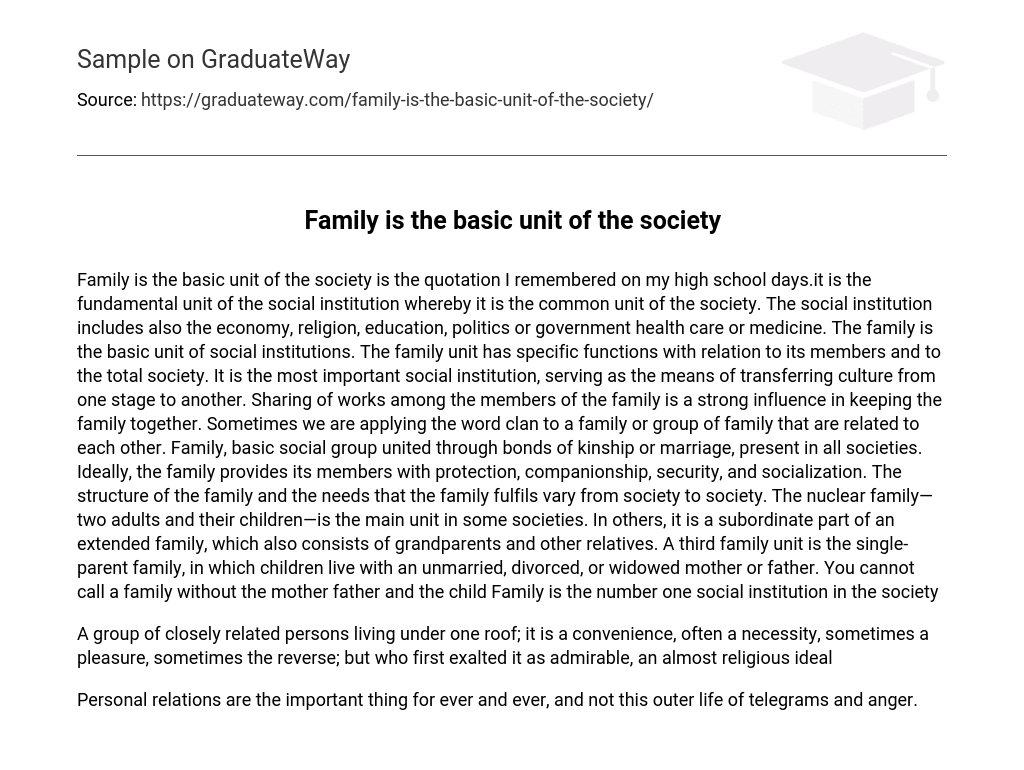“The family is the basic unit of society,” is a quote I remember from my high school days. The family is considered the fundamental unit of the social institution, which also includes sectors such as economy, religion, education, politics, and healthcare. It serves as the primary unit for all social institutions.
The family plays specific roles and functions both within its members and for society as a whole. It is crucial in transferring cultural values across generations. Through the sharing of responsibilities, families are able to stay united and strong. Sometimes, the term “clan” is used to refer to families or groups of related individuals.
Families are present in every society and can be defined as basic social groups formed through kinship or marriage. Ideally, families provide their members with protection, companionship, security, and socialization. The structure and needs fulfilled by families can vary across different societies.
While some societies prioritize nuclear families consisting of two adults and their children, others include extended families with grandparents and other relatives. Additionally, there are single-parent families where children live with an unmarried,
divorced
,
or widowed parent.The family
,
which includes the mother
,
father
,
and child
,
is an essential social institution in society.
A family is a group of closely related persons living under one roof. It can be perceived as a convenience, often a necessity, and occasionally brings joy or the opposite. Yet, who first hailed it as praiseworthy, an almost sacred concept?
Personal relationships are the perpetual priority, not the external aspects of life such as telegrams and anger.





